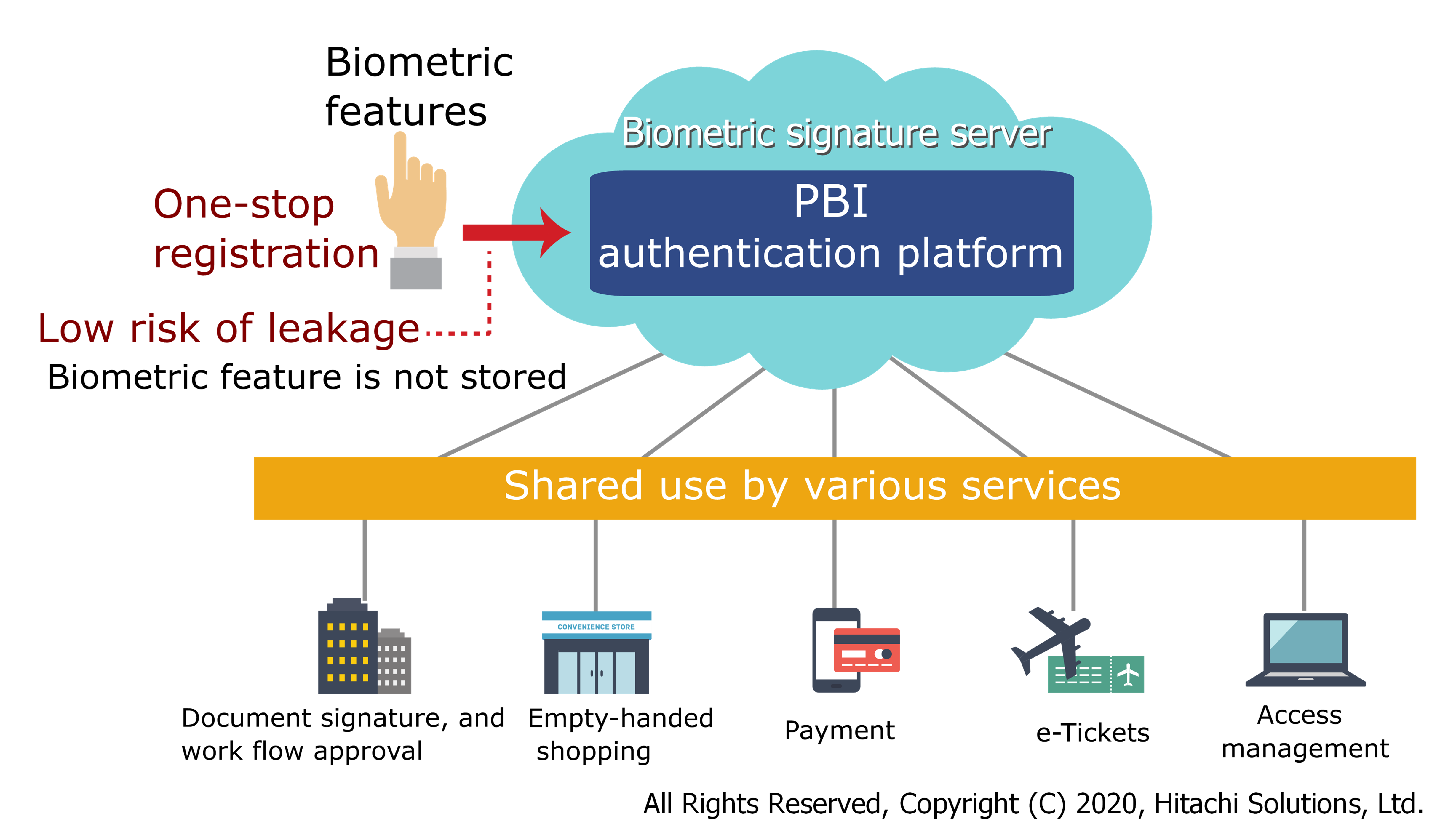PBI: Public Biometric Infrastructure
Category: IT/Electrical
Developers: Hitachi, Ltd.
Japan
Product Description:Hitachi’s PBI: Public Biometric Infrastructure is the world’s first biometric authentication system that does not store any biometric data such as facial and finger-vein features anywhere, minimizing the risk of data leakage and abuse. It processes empty-handed payments and bank transactions without a card or smartphone while strongly protecting security and privacy. It runs on an authentication server, a registration client and an authentication client. The registration client and the authentication client are devices, such as PCs and smartphones, equipped with sensors that acquire biometric data such as fingerprints, faces and vein patterns. When a user is registered, the registration client device acquires the user’s biometric feature. This feature, along with a random number generated for one-time use, is converted into a PBI public key by using a one-way function. This technology ensures that the data in a database or network cannot be tampered with, forged or spoofed even if it is leaked. By using PDH, it is possible to identify a large number of users quickly and accurately based only on their biometric features.
Developers: Hitachi, Ltd.
Japan
Product Description:Hitachi’s PBI: Public Biometric Infrastructure is the world’s first biometric authentication system that does not store any biometric data such as facial and finger-vein features anywhere, minimizing the risk of data leakage and abuse. It processes empty-handed payments and bank transactions without a card or smartphone while strongly protecting security and privacy. It runs on an authentication server, a registration client and an authentication client. The registration client and the authentication client are devices, such as PCs and smartphones, equipped with sensors that acquire biometric data such as fingerprints, faces and vein patterns. When a user is registered, the registration client device acquires the user’s biometric feature. This feature, along with a random number generated for one-time use, is converted into a PBI public key by using a one-way function. This technology ensures that the data in a database or network cannot be tampered with, forged or spoofed even if it is leaked. By using PDH, it is possible to identify a large number of users quickly and accurately based only on their biometric features.

Biometric Signature Server
